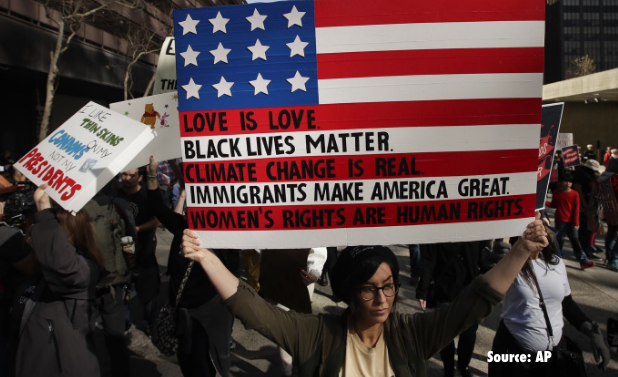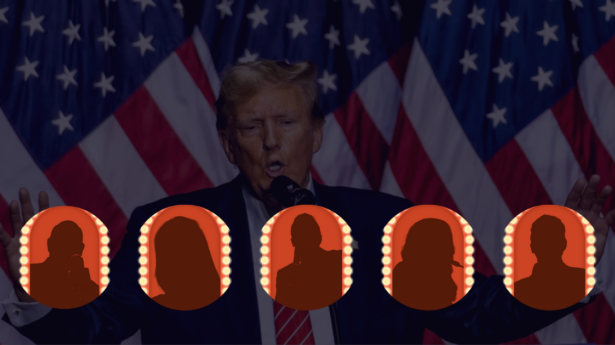The Unitarian Universalist Service Committee advances human rights through grassroots collaborations.
March 31, 2017, Rights Reading

March 31, 2017
Our weekly roundup of what we’re reading includes a few select articles from the front lines of human rights that we don’t want you to miss. This week we are highlighting the importance of intersectionality – and some various groups that are leading this charge!

Over 50 partners, comprised of refugee, LGBTQ, Black, Latino, immigrants, and other minority groups are coming together from April to May to launch protests all across the United States. These groups, known as The Majority, are calling the April to May events “Beyond the Moment,” inspired by Dr. King’s “Beyond Vietnam” speech, in which he first addressed the importance of intersectional work rather than focusing only on civil rights.
Since the inauguration of Trump, there have been weekly protests around indigenous rights, climate change, women’s rights, refugee and immigrant rights, and other issues. The Majority emphasizes that supporters of the “Beyond the Moment” movement think and go beyond this current administration in order to effect lasting change.
Among some of the groups that make up The Majority are Mijente and Georgia Latino Alliance for Human Rights, UUSC partners doing amazing work.
Arab American community leaders are working with other minority groups that are being threatened by the current administration. The working-class, people of color, women, and other groups are showing a united front in the midst of increasing threats and violence. Leaders in the Arab American community understand that social justice must be won in unity with other oppressed groups, as the struggles in one group are linked with another.
Trump’s presidency has stressed the need and importance of deepening and strengthening intersectional work. The administration has brought to light a history of this kind of work. One of several examples of intersectional work highlighted in this article is the work of Arab American Action Network (AAAN) in Chicago, an organization that works on racial profiling. AAAN works closely with teachers unions to make schools sanctuary schools for both undocumented and Black students.
As Rashad al-Dabbagh, founding director of Arab American Civic Council, a UUSC partner, states, “There’s no way we’d be able to survive without unity. That’s why it’s important to work together with all of our communities – Latinos, Asians, LGBT groups, African Americans, Indigenous peoples. Our struggles are linked. Right now, we’re at a point in history where we cannot afford to work alone.”
Read more about UUSC’s work with Arab American Civic Council here.
Last February, on Legislative Action Day, 240 Unitarian Universalists from Texas met with legislators to advocate for reproductive, immigrant, refugee, and economic justice. This event was organized by Texas UU Justice Ministry (TXUUJM), a UUSC partner that organizes a statewide network of UU congregations.
One of the actions was to oppose a Sanctuary City Bill, which would affect immigrant communities. TXUUJM has a longstanding history of working with immigrant communities. TJUUJM has also been working with the transgender community and is working against a bill that prevents transgender people from choosing which bathroom they prefer to use. UUSC is proud of the wide-ranging and intersectional work that TXUUJM and other Unitarian Universalists are doing in Texas.

